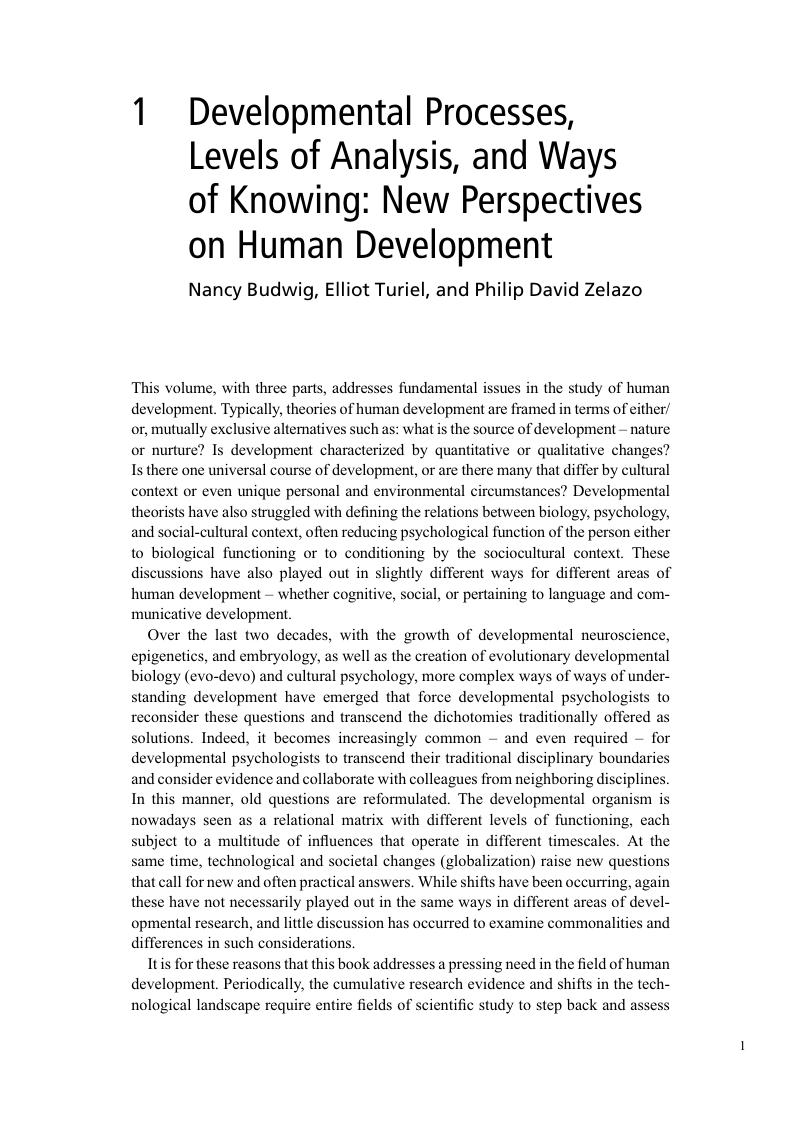Book contents
- New Perspectives on Human Development
- New Perspectives on Human Development
- Copyright page
- Contents
- Figures
- Maps
- Tables
- Contributors
- Preface
- 1 Developmental Processes, Levels of Analysis, and Ways of Knowing: New Perspectives on Human Development
- Part I Cognitive Development
- Part II Social Development
- Part III Language and Communicative Development
- Index
- References
1 - Developmental Processes, Levels of Analysis, and Ways of Knowing: New Perspectives on Human Development
Published online by Cambridge University Press: 11 May 2017
- New Perspectives on Human Development
- New Perspectives on Human Development
- Copyright page
- Contents
- Figures
- Maps
- Tables
- Contributors
- Preface
- 1 Developmental Processes, Levels of Analysis, and Ways of Knowing: New Perspectives on Human Development
- Part I Cognitive Development
- Part II Social Development
- Part III Language and Communicative Development
- Index
- References
Summary

- Type
- Chapter
- Information
- New Perspectives on Human Development , pp. 1 - 12Publisher: Cambridge University PressPrint publication year: 2017



